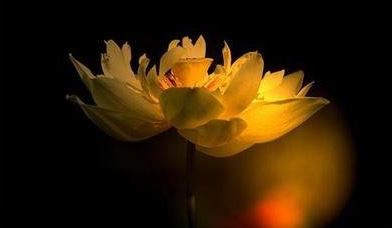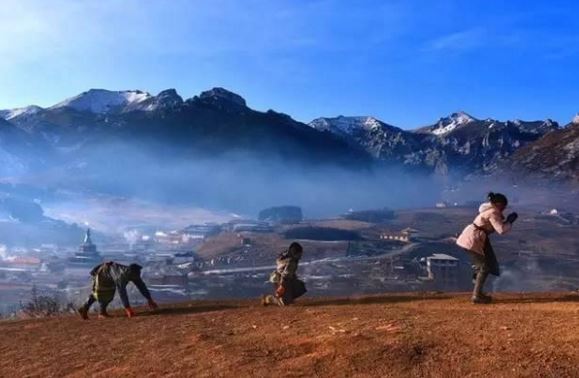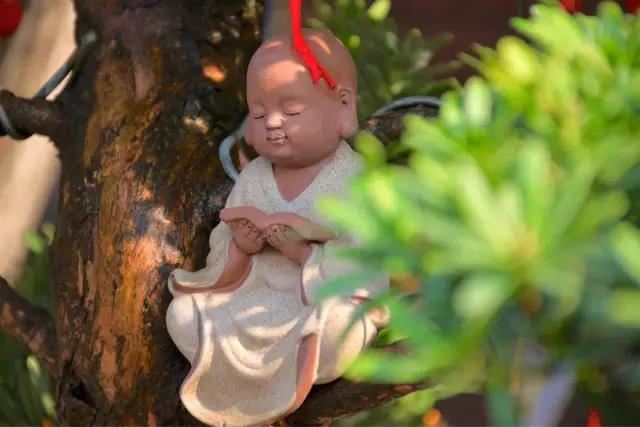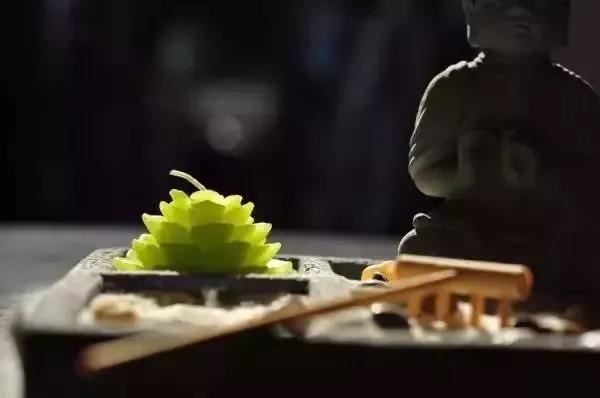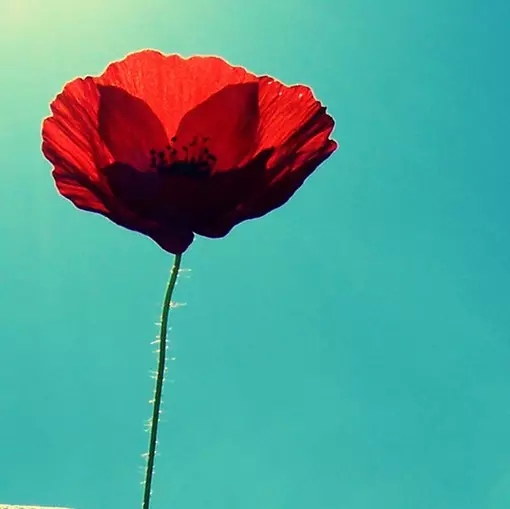
Master Hongyi's joy and sorrow
2021-10-16 Other articles
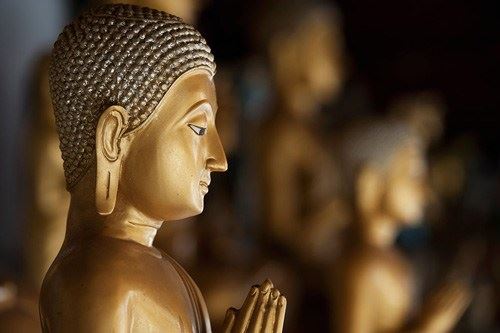
Master Hongyi (1880-1942), whose common surname is Li, whose name is Xi, and whose scientific name is Wentao, also known as Chengqi and Guanghou, whose courtesy name is Shutong and Xishuang, his pseudonym and Yanyin, has many other names.His ancestral home is Pinghu, Zhejiang. He was born on September 20th in Dizang Temple in Hedong, Tianjin (now Lujia Hutong, Liangdian Street, Hebei District) and a wealthy businessman.He passed away in Quanzhou on October 13, 1942.When a young person is famous, he becomes a path. When he takes peaches and plums, he does not say anything, but he becomes a path.His scientific name is Wentao and his courtesy name is Shutong.The Dharma name is Hongyi and he is known as Master Hongyi in the world.
Li Shutong is the forerunner of the new culture movement in my country and a famous artist, educator, thinker and innovator in modern history.As an early enlightener of the Chinese New Culture Movement, he made great achievements in many cultural fields such as music, drama, art, poetry, seal carving, metal and stone, calligraphy, education, philosophy, and law throughout his life, and has successively cultivated a large number of outstanding artistic talents.Famous painter Feng Zikai and musician Liu Zhiping all came to his disciples.
His father Li Xiaolou was once the head of the Ministry of Personnel. Later, he resigned from his post to run a salt industry and a money shop, and became a wealthy person in Tianjin.Wentao lost his father at the age of 5.He knew seal script at the age of 13, was good at poetry at the age of 15, was good at seal processing at the age of 17, and married Yu, a tea merchant daughter.When the Reform of 1898 failed, some people said that he was a member of Kang and Liang, so he went south with his family and lived in the south of the Chengnan Caotang in Shanghai and joined the Chengnan Cultural Society.At the age of 22, he entered Nanyang Public School and obtained his career from Cai Yuanpei.After class, he participated in Peking Opera performances, and also wrote "The Anthem of the Motherland" for the Shanghai Society's tutoring subjects, and compiled "The Singing Collection of Chinese Studies".
In the 32nd year of the Guangxu period, in order to seek a way to save the country, he traveled to Japan to study.After arriving in Japan, he graduated from Tokyo Fine Arts College, majoring in oil painting and also studying piano.During his time in Japan, Li Shutong published an article in the magazine "Lion Dance" published by students studying in Japan, joined the Suiouyin Society and communicated with Honda's bamboo planting, Morihuai Nan, and Higashibe Minghe.After class, I was enthusiastic about drama art activities and joined hands with my classmates from Liudong to organize the Chunliu Opera Club.During his time at school, he also participated in the 12th exhibition of the White Horse Club (Spring 1909) and the 3rd exhibition (Spring 1910).In Tokyo, he founded the music journal "Music Magazine" and published many songs he wrote.On October 4, 1906, the National News of Japan published a visit to Li Shutong and a portrait photo.In sketching class, he dared to break through the barriers of feudal ethics and was hailed as the pioneer in the enlightenment period of my country's New Culture Movement.
In the third year of Xuantong (1911), Wen Tao returned to China after his studies. He first taught at the Tianjin Higher Industrial School and served as a pattern teacher. Later, he transferred to the Shanghai Chengdong Women's School to teach Chinese and music.The following year, he joined the Nanshe Poetry Society and organized the Wenmei Association with Nanshe Fans. He edited the Wenmei Magazine and also served as the editor of the Literary Supplement of the Pacific Daily.Soon, he went to Hangzhou to teach at Zhejiang Provincial Two-level Normal School (i.e. the First Normal School), and also taught part-time at Nanjing Higher Normal School.In 1914, the human body was first used in art education in China.
He has been engaged in art education for seven years and has cultivated many artistic talents.Wen Tao had the ideal and ambition to reform society, but seeing that Chinese society was corrupt and dark at that time, he was unable to change the status quo, so he was pessimistic and disgusted with the world. On August 19, 1918, he fled to Hupao Temple in Hangzhou and became a monk. He converted to the old monk and realized his disciple. His Dharma name was Yanyin and his name was Hongyi. Later, he adopted dozens of Dharma names such as Yiyin, Yixiang, Ciyin, and Zuxuan.In the 17th year of the Republic of China, Hongyi participated in a monk's service group to promote Buddhism in Southeast Asia such as Thailand and Singapore.In early December, he arrived in Xiamen by sea from Shanghai. He was warmly entertained by Chen Jiageng's younger brother Chen Jingxian. He stayed at Nanputuo Temple and immediately moved to Nan'an Xuefeng Temple to spend the year.After the Lantern Festival, I returned to Nanputuo and lived for three months.
In April 18, he traveled to Wenzhou through Fuzhou.In October of the same year, Hongyi entered Fujian for the second time.I first arrived in Xiamen, and then went to Quanzhou at the invitation of Ye Qingyan, the director of the Ci Academy of Kaiyuan Temple in Quanzhou, to compose the song "The Song of the Three Treasures" for the students of the college to worship Buddha in the morning and evening.At that time, Master Xingyuan founded Yuetai Buddhist Research Society in Chengda Temple in Quanzhou. Hongyi helped organize the ancient version of Buddhist scriptures collected in the temple. He first formulated six general rules and compiled the catalog into five collections. Each collection was divided into Zen, Vinaya, etc., and each section was divided into two types: A and B (A is the complete version, and B is the residual version), which was quite detailed.In April 19 of the Republic of China, I left the temple and traveled to Jiangsu and Zhejiang.
In October 21, Hongyi entered Fujian for the third time, and his footprints covered all major temples in Quanzhou, Xiamen, Fuzhou and Zhangzhou. Among them, the longest time they lived in Quanzhou, and they lived in Puji Temple in Yongchun for 573 days.During the third time when Hongyi lived in Fujian, the War of Resistance Against Japan broke out and the national crisis was unprecedentedly severe. He always thought of the fate of the country and nation and was widely admired by monks and lay people.
In October 27, in order to encourage the monks of Chengtian Temple in Quanzhou to carry forward the spirit of patriotism and love for religion, he wrote an inscription: Do not forget to save the country when chanting Buddha's name. You must recite the Buddha's name at the end of the poem. The Buddha is also postscript: Buddha is awakening. Only by realizing the truth can you swear to sacrifice your life, sacrifice everything, be brave and diligent, and save the country.Therefore, you must recite the Buddha's name to save the country.Give the Buddha a spirit of the times.Hongyi is very concerned about historical relics.
In October 22, he discovered the tomb passage of the Tang poet Han Wei in Panshan, western suburbs of Quanzhou;In the 27th year of the Republic of China, a lost poem written by Han Wei in Songyang Cave in Hui'an County was discovered in the "Luoyang Documents" that Han Wei did not include in "Complete Tang Poems". Therefore, he wrote the article "Xianglian Collection to Distinguish the False", believing that Han Wei was not a romantic talent, but a great poet with the same patriotic thoughts as himself, and put forward original insights for the study of Han Wei.He also wrote a couplet and annunciation record for the Monician Temple in Jinjiang, a plaque for Zhu Xi's Academy, and a couplet written by Zhu Xi for Kaiyuan Temple. He wrote a couplet for Li Zhi, a famous thinker in the Ming Dynasty, and a solemnly promoted Quanzhou's traditional culture.After ten years of his reign, he actively spread the Dharma. He successively conducted preaching activities in urban and rural areas such as Xiamen, Zhangzhou, Anhai, Quanzhou, Hui'an, Yongchun, etc., and made detailed explanations on the teachings of the Vinaya School, Huayan School, Pure Land School, and the Medicine Buddha Sutra, Amitabha Sutra, Ksitigarbha Sutra, and the Heart Sutra.He also cared about Buddhist education and advocated the Nanshan Buddhist Academy at Zunsheng Academy of Kaiyuan Temple in Quanzhou.In the 25th year of the Republic of China, he received more than 10,000 volumes of Japanese Mahayana and Hinayana sutras and laws in Quanzhou, and personally compiled them into four volumes of the "Buddhist Series" and submitted them to Shanghai World Bookstore for publication. The monks in southern Fujian have improved their Buddhist knowledge.His Buddhist thought system takes Huayan as the realm and the four parts of the law as the action, and leads to the Pure Ones as the fruit.
Ten years of pious practice have not stopped.He devoted himself to circling and annotating the three major works of Nanshan written by Daoxuanluzu of the Tang Dynasty ("Zhenshi Chao", "Jiabian Shu" and "Karma Shu") and the three major works of the three official works of Yanzhi Yuanxi, a lawyer in the Song Dynasty ("Zi Shi Ji", "Xing Zong Ji", and "Ji Yuan Shu"), leaving a correct model for those who later ruled Nanshan Ruzhi.The Buddhist community respected him as the eleventh generation of the Nanshan Vinaya School in modern times.On October 13, 31, the Republic of China, Hongyi passed away at the Wenling Nursing Home in Quanzhou.Seven days later, it was cremated at Chengtian Temple.The remains are divided into two places to build relics pagodas, one is located in the Mida Rock of Qingyuan Mountain, Quanzhou, and the other is located in the Hupao Dinghui Temple in Hangzhou that year.Another Shengxi Memorial Tower was built at Wenling Nursing Home Zhuhua Pavilion.His masterpiece "The Record of the Precepts of the Four-Part Vinaya" was published in the 13th year of the Republic of China.After silence, monks and laymen at home and abroad compiled and published their works: "A Brief Introduction to the Nanshan Rules at Home", "Thirty-Three Compiled Books of the Lectures of Laws", "Nanshan Ruyuan Collection", "Wanqing Collection", "Wanqing Old Man Lectures", and "The Complete Works of Master Hongyi".
Although Master Hongyi is famous for upholding the law, he is determined to recite the Buddha's name.In his later years, his spirit and energy gradually faded, and he knew that he was about to be reborn, so he tried his best to spread the Dharma and often advised people to listen to the clock and recite the Buddha's name. According to the ticking sound of the clock, he imagined it as the four words Amitabha Buddha.If you recite the six-character Buddha name, then the first drop is Namo, the answer is Ami, the second drop is Tuo, and the answer is Buddha.His listening to the clock is a wonderful method of chanting Buddha's name.In the spring of 1942 AD, Master Hongyi went to Lingrui Mountain to preach.Not long after, he lived in Wenling Nursing Home, preached to the public on the Mid-Autumn Festival on August 15th, and told the elderly in the courtyard that the Pure Land Dharma was the first to be held.On the 23rd day, he showed some minor illnesses and refused medicine and inquiries, but just focused on chanting Buddha's name.On the 27th, I went on a hunger strike and only drank water.On the 28th, he wrote a will to explain to Master Miaolian to be responsible for the funeral.On the afternoon of September 1st, I wrote a piece of paper with the intersection of sorrow and joy, and gave it to Miaolian, and told me to pay attention: If I see me crying when I was helping with chanting, it is not about nostalgia for the world or concerning my relatives, but about the intersection of sorrow and joy.After saying that, he still recited the Buddha's name silently.On the fourth day, the Xu hour (7:00 to 9:00 pm), he passed away peacefully as the public recited the Buddha's name.He was sixty-three years old at the time.After cremation, 1,800 relics were obtained, and 600 relics were blocked.
Master Hongyi is a rare artistic genius in the history of modern and contemporary Chinese culture. He has profound attainments in all fields of calligraphy, painting, poetry, drama, music, art, gold and stone, and education.In 1918, he entered Hupao Temple in Hangzhou and became a monk. Since then, he has practiced the Buddhist Vinaya Sect and has become a Buddhist monk.Representative works: "Preview of Nanshan Laws at Home", "Records of the Four-part Laws and Precepts", "Combined works by Master Hongyi", "Cool Songs Collection", "Li Xiweng's Ancient Method Book", etc.
The mixture of sorrow and joy is Master Hongyi's suicide note.Just four words, endless mystery.
There are many different opinions about the reason why Li Shutong became a monk. Among them, Feng Zikai's three-story life theory is most consistent with his personality: human life can be divided into three levels: one is material life, two is spiritual life, and three is soul life.Material life is food and clothing, spiritual life is academic literature and art, and soul life is religion.Li Shutong is a person with a very strong desire for life. After satisfying material and spiritual desires, he must also explore the final part of life. So he climbed up to three floors, became a monk, practiced the Pure Land, and studied the precepts. This is of course, and it is not surprising.
There is love in life, and there is joy and joy.In life, sadness and joy are intertwined, and sorrow and suffering are always more than joy.Life is like a dream, how much joy is there?The fastest passing of life is always a happy time.Li Shutong, who has been dependent on his mother since childhood, has been lying on her loving mother like a flying catkin floating without roots after she died of illness.He wrote infinite grief into the lyrics "Dream" and played the piano song at his mother's funeral as crying:
Only when the night is long and I sleep alone, I am in a daze and my soul is running.I dream of crying and leaving my parents, sighing with my separation.
My father's words should take care of my sleep and food, and I will return early when my mother tongue.The moon is falling and the crows are crying, the dream is vague, do you know the past?
The long life of sorrow and joy passed by, and the grace of my relatives will last forever.
As the sound of the endless sad music flows, looking back at those dreamy happy times, who can resist the rolling tears?
As a romantic talent living in the chaotic times of the late Qing Dynasty, the young Li Shutong once wandered in the erotic scenes and went out of the geisha boudoir.Many admirers often take a evasive or deny attitude towards Li Shutong's life.In fact, this is the true love of people with mortal body.For Li Shutong, who has a very high understanding, it is precisely because of experiencing these glitz and hustle and bustle that he has the feeling of being unable to make a living, and can see through this incomplete world, thereby planting the seeds of the soul that transcends the world.
In the song "Farewell", his voice is already revealed:
Outside the long pavilion, beside the ancient road, the fragrant grass is connected to the sky.The evening breeze blows the willows and the sound of the flute is gone, and the sunset is outside the mountains.
At the end of the sky, at the corner of the earth, the friendship between you is half gone.A cup of turbid wine is over and I am happy after all. I will leave the cold dream tonight.
The heart-wrenching singing sound passed through the foggy green mountains, and the faint sound of the Buddhist bell slowly rippled out.
Li Shutong is a person with a very rich mind.According to the theory of psychologist Maslow, he is also a person with high psychological freedom.This kind of person with extraordinary mental health often has great independence and autonomy, and will do whatever he wants when he should do his own things.The enlightened Uncle Li regards secular life as an illusory mirror and water moon. He would rather choose a simple and peaceful life to gather all his mind and sublimate his soul.He knows that the less demand, the more freedom he will get.
Feng Zikai said that when you are confused and void about life, you should ask philosophy and his brother’s religion.Only then do you believe that true Buddhism is above everything else.Therefore, Mr. Li’s abandonment of education and art to practice Buddhism is like moving to a tree from a valley. It is not a pity, but a celebration.It was not on a whim that Li Shutong became a monk, but this was the ultimate goal of his life.
Camus once said that the highest philosophy of life is how to face death.In other words, human beings must learn a kind of death wisdom that observes life from death.Because only by moving to death in consciousness can we discover the truly most precious thing in life.It would be too late to think about life when you are one step away from the God of Death.
Li Shutong realized this wisdom of moving to death in consciousness, and felt deeply the urgency of time.When answering the question of why Xia Yizun left his wife and children, he said: The world is impermanent, and if you die of illness, you can't even think about not leaving it.Life is about gaining and giving up.In order to prove his life, he abandoned fame and fortune and parted with his wife and children, and faded out of the world and returned to Buddhism.
People are often prone to becoming slaves and difficult to become their own masters.Only the Li Shutonghui was able to climb the top of the mountain, overlooking all the mountains and playing the symphony of fate for himself.There are scenes like this in the movie "A Bright Moon":
In the moonlit bedroom, Xuezi hugged her husband tightly and said in a crying voice: I just want to be with you!
What has been decided is irreversible.Li Shutong was sad, but she had decided.
Shutong, haven’t you said that we are determined before marriage?
Yes, I feel as if I have been watching you since I was born, but my eyes are still hungry;I felt as if I had hugged you tightly for tens of thousands of years, but my heart was still unsatisfied.
Shutong, you are an unusual person. Xuezi burst into tears. I have melted in your arms. I have long since disappeared!
Sorry, I'm so sorry, Amitabha, Amitabha
Li Shutong loved his wife, but his reflection on life made him give up his small love to achieve great love.At the last moment of parting on Xizi Lake, he said to Xuezi: Love is compassion.If you are not patient, you will be helpless. If you have love, you will be worried. Great compassion is often intertwined with great love and forbearance.
He did not hesitate to withdraw from his glory and wealth, and resolutely broke free from the shackles of fame and fortune, and was willing to bury his head in the blue light and yellow scroll.In the midst of those flash-like thoughts, all the noisy desires in the world gradually disappeared, and what remained was the eternal time and space without color and desire.From then on, the morning bells and evening drums in the ancient temple became the most wonderful timbre and melody in his heart.
From the prosperous erotic scene to the bitter green lanterns of ancient temples, in the eyes of many people, these are two worlds different scenery.People were surprised by Li Shutong's tragic move that transcends secular values, but he was at ease with this.From a lust artist to an ethereal religious, from a literati Li Shutong to a monk, Master Hongyi.He is the wise man in the chaotic and ignorant world, the lonely and conscious thinker.
The first time I learned that Li Shutong was a domestic TV series I watched when I was very young, it was rumored that the country attached great importance to the drama. He would have to be seen by the monks. He had to have Buddha light on his head and wisdom in his heart. At that time, I thought that if he was so picky about the actor, then Master Hongyi must be a great person.But at a young age, he could not understand the master's meticulousness. He only remembered that the protagonist was passionate, full, elegant and elegant, and his body exuded a charming glory. He felt extremely regretful that he suddenly entered the monk during the great time when he had carved carved beams in the painting hall and his beautiful wife and son.
Later I learned that the master was once the pioneer of the modern New Culture Movement in China and the first person to introduce Western oil paintings, music and dramas to China.He was the first to use a nude model in China. He founded the Chunliu Society Performing Arts Department and played the Camellia female Margaret on the Japanese stage and held a slim waist. He was able to poetry, calligraphy, painting, literature, singing, playing, and carve even the song "Farewell" that I am obsessed with in China's farewell culture is also written by a master!How can a person be so knowledgeable and skillful!
Later I learned that the master was once an outstanding educator. Feng Zikai, Liu Zhiping and others were both masters. How could a person be so serious and diligent when he was extremely suave?
Later I learned that the master was actually a generation of monks from the Nanshan Vinaya Sect that had been revived for 700 years.The Vinaya School is the most difficult to practice. The so-called three thousand majesties and eighty thousand meticulous practices are practiced one by one, and the master practices one by one, revitalizes the Nanshan Vinaya School, and develops the mystery of the Nanshan Mountain. It is superb and profound. It is admired by the Haiwen School and is worthy of being a Buddhist dragon and elephant.How can a person be so disciplined and restrained, and behave in a long life after studying the scriptures!
Just as Yu Pingbo admired that Mr. Li did it: he was a young man when he was a young man, and he was a handsome man;When he was a famous scholar in middle age, he was a romantic celebrity;He is an actor when he is doing dramas;He studied oil painting and was an artist;He studied piano and was a musician;He runs a newspaper and is an editor;Being a teacher is a teacher;Being a monk is a high-ranking monk.Many people are speculating why the master suddenly became a monk when he was the best in Qifen Guyan, and he also studied many reasons. I also have an idea that things like art and literature cannot meet the master's too many and great spiritual needs. He must embark on a more difficult journey of Buddhism. The resolute ruthlessness is the greatest sentient being.
Until one day, I saw the master's last writing at the time of death, and there were only four words: sadness and joy.I already knew this word when I was in elementary school. It’s not that I don’t know this word, but at this moment, in front of the master, the boundless vastness of these four words surged like a rumbling inspiration. Yes, when we have experienced all kinds of joy and pain, excitement and depression, hope and fall, when we have seen countless beautiful scenery and haze, suffered countless spring breezes and thunder, and after countless loves and resentments, when we are about to be born, old, sick and die, we cannot get what we want, love and separation, hate and meet, and the five aggregates are burning, and when the night journey of life is about to end, all the past becomes a manifestation, and our long life turns into a sigh.The wine glass is empty and the joy is about to end. Let’s go if you should leave. Recite the Prajna Paramita and arrive at the Pure Land of wisdom.
Master Bodhi's "Master Hongyi's Saha Relationship" records Master Hongyi's passing: On October 13, 1942, the master practiced the calligraphy and wrote four words of sadness and joy, and passed away at the Wenling Nursing Home in Quanzhou while fully enlightening the state of cessation.He was 63 years old and 24 years old.
Master Hongyi’s four words of sadness and joy are well known to everyone. Everyone interprets them based on their own experiences. Tian Qing, a traditional and Buddhist music scholar, was always confused in his special article, and focused on discussing two representative opinions, one starting from the world and citing, as follows:
1997In 2018, in the second volume of "Old Photos" published by Shandong Pictorial, there is a article called "The Meaning of Death" by Meng Fanming. The author came to the conclusion from the four words "Hongyi's death" of Master Hongyi's last writing and the intersection of sorrow and joy at the end of his death: the master became a monk and was far away from the tangible confinement of the material shell of the earthly material, but seemed to be unable to stay away from the invisible followment of the inner emotions of the earthly world.The author believes that with Master Hongyi's practice of admiration, he should write a last-minute writing such as no sorrow or no joy, or write nothing, leaving a clean blank.And it is concluded that Master Hongyi has not actually solved the fundamental problems in life, at least, it has not been fundamentally solved.
Mr. Tian Qing himself interprets the words from a Buddhist perspective as follows:
In fact, this is also a misunderstanding.The word "sad" in the Buddhist discourse system is not the meaning of sadness or sorrow used by ordinary people.The sorrow mentioned in Buddhism is Sanskrit Karuna, That is, compassion.The Sui monk Huiyuan explained the "Mahayana Chapter" as: Love and pity are called kindness, and compassion is about sorrow.And he said: Compassion can be with joy (giving joy), and sorrow can relieve suffering (making it free from suffering).Whether it is love and compassion, joy and relief, it refers to the compassion and help for all living beings, rather than the sentimental feelings of the tragic person.Kumarajiva's famous translation of "The Great Wisdom Treatise" clearly states: Great compassion and happiness of all sentient beings, and great compassion relieves all sentient beings' suffering.The great compassion without fate and great compassion advocated by Mahayana Buddhism emphasizes the true meaning of compassion and compassion. The love for parents, children, and lovers is love with fate, and is love rather than compassion;Great compassion without fate is to love all life, including sentient beings who have no fate with you on the surface.
Similarly, general sympathy for the suffering of others is only compassion rather than compassion. True great compassion is a feeling of the suffering of sentient beings, that is, empathize with others' pain as one's own pain.Therefore, Master Hongyi’s last writing is by no means an invisible follow-up of the inner emotions of the world, nor is it a reflection that the fundamental problem of Master’s life has not been solved.On the contrary, from a Buddhist perspective, behind the master's peaceful nirvana image and the intersection of sorrow and joy, it just reflects that the master fundamentally solved the fundamental problems of life during Nirvana.
As for the word Xin, Buddhism believes that the fundamental problem in life is just the word life and death.After life and death, one can thoroughly understand the causes of suffering in life and the methods of eliminating suffering and practice it in practice. This is the only way to solve the fundamental problems of life.The famous Three Dharma Seals in Buddhism say: All sufferings are caused by defilements (defilements are caused by afflictions), which indicates that life is full of troubles. The reason is that sentient beings do not understand the principle that all things are impermanent and all dharmas have no self.If the six fundamental afflictions in life (i.e. greed, anger, ignorance, doubt, arrogance, and evil views) are not liberated, they will create karma due to leakage (referring to all physical and mental activities of a person, including the three karmas of body and mind), and will also generate new afflictions due to karma. In this way, reincarnation will never end.
Therefore, the Buddha taught sentient beings to understand their minds and nature by diligently practicing the three studies of precepts, concentration and wisdom, and ultimately get rid of troubles and eliminate life and death.Therefore, being able to be as happy as a child before death is also the best explanation for fundamentally solving the fundamental problems of life.Most people are afraid of death, and most of them struggle before their death. Therefore, the Buddha summarized the eight sufferings of life, including the suffering of death (referring to birth, old age, illness, death, love separation, meeting with enemies and hatred, inability to obtain what they seek, and the five aggregates of attainment).Only those who fundamentally solve the fundamental problems of life can get rid of all troubles at the time of death, have a happy feeling, and write about the four intersections of sorrow and joy, which are as deep as the sea and as shallow as the stream;It is as heavy as a mountain, as light as the word "Smelling the fragrance of flowers" from afar.
Obviously, Mr. Tian’s annotations are more acceptable to Buddhist disciples. As a portrayal of Master Hongyi’s compassion, we can also find the written paragraphs from his current works, so that we can see some deeper causes and conditions:
In the December of Renshen year, the Buddhist chanting meeting of Miaoshi Temple in Xiamen invited me to give a speech and recorded this manuscript.Yu Shi Zhi knew that the lawyer could not afford to get sick and was worried day and night.Seeing this speech, he was filled with sorrow and joy, so he let go of his body and mind, abandoned medicine, and worked hard to recite the Buddha's name.He also helped him get sick, repent with great compassion, chant and recited with a long voice, and was brave and diligent when he was practicing the scriptures.Those who see and hear will be surprised and praised, saying that the power of touching is so exciting and great.Although I only read this manuscript, I only counted the good words and experiences of ancient and modern times. Those who enjoyed it may have some simple things.This is the purpose of governing and conserving the matter and spreading it.Hongyi's musical notes."The Last of Life"
There are quite a lot of ink records published by Master Hongyi in later generations. What we see now is the four words of sadness and joy, square and no title around, so we can only discuss it based on the words.By chance, an old friend recently planned and edited the collection of calligraphy that commemorated the 60th anniversary of Master Hongyi's death. The author visited because of the incident and occasionally saw the original manuscript of the sad and happy intersection on the computer. However, this text is a Sutra of Contemporary Sutra. The three characters of the Sutra of Contemporary Sutra are in the lower left, arranged vertically, and one-third of the size of the characters of the Sutra of Contemporary Sutra are used for the intersection of sad and happy intersection.
After Master Hongyi became a monk, he promoted the Nanshan Vinaya School with his whole life, and practiced in practice and relied on Master Yin Guang to return to the Pure Land. Even when Japan's arrogance invaded China was the most arrogant, there was a timeless chanting Buddha's name and not forgetting to save the country. To save the country, one must chant Buddha's name for the country and the people to advocate;In other words, the Pure Land Sect, the Contemplation Sutra is the famous teaching of the Buddha's Sutra of Contemplation of Amitabha Buddha's Sutra of Contemplation of Amitabha Buddha's Sutra of Contemplation of Contemplation of the Buddha's Sixteen Contemplations of the Pure Land.The four words of the intersection of sorrow and joy are not found in the "Buddha Sutra on the Contemplation of Amitabha Buddha". Obviously, this is not a collection of sentences written by Master Hongyi to spread the Dharma.The three words that Master Hongyi, a practitioner of Pure Land, who is noted at the end of his life obviously refer to a situation that everyone is more familiar with:
Have this merit.One day or even seven days.You will be reborn.When born in that country.This person is diligent and brave.Amitabha Tathagata, Avalokitesvara and countless transformed Buddhas, hundreds of thousands of monks, Śrāvakas, and countless heavens.Seven Treasure Palace.Guanyin Bodhisattva holds the Vajra Platform.With the Bodhisattva Mahasthamaprapta to the Prayer.Amitabha Buddha amplifies the light and shines the body of the practitioner.Give hands to greet the Bodhisattvas.Guanyin Mahasthamaprapta and countless Bodhisattvas.Praise the walker and persuade them to help them.The walker was already happy and excited when he saw it.He saw that he was riding on the Vajra Platform.Follow the Buddha.It’s like a blink of an eye to rebirth in that country.Being born in that country.Seeing that the Buddha's physical body is complete.Seeing that all Bodhisattvas have complete colors and appearances.The wonderful method of speaking in Baolin of Light.After hearing this, you will realize the Dharma of No Birth.The scriptures met all Buddhas in a moment.All over the ten directions.Receive the record in the previous stages of the Buddhas.Return to the country.Obtain countless hundreds of thousands of Dharani Gate.He is a top-grade and top-level survivor.The most advanced middle-aged person.There is no need to uphold, read and recite scriptures.Be good at understanding the meaning.Yu Yixin is not alarmed.Deeply believe in cause and effect and do not slander the Mahayana.
With this merit.Dedicate merits and wish to be reborn in the Pure Land.Those who do this will die when their destiny is about to end.Amitabha Buddha, Guanyin and Mahasthamaprapta.Around countless people.Praise before the practitioner holding the purple gold platform.Method.You practice the ultimate meaning of Mahayana.Therefore, I am here to welcome you now.He gave a hand to Qianhua Buddha for a while.The walker saw himself sitting on the purple gold platform.Put your hands together and praise the Buddhas.Just like a moment of thought.He is born in the seven treasure pool of that country.This purple gold platform is like a big treasure flower.The passage opens immediately.The walker is made of purple and gold.There are also seven treasure lotus under your feet.Both Buddhas and Bodhisattvas shine brightly.The person who is illuminated will be enlightened.Because of the past, I heard the voices of the crowd.Purely speaking, the ultimate truth is profound.Then he went down to the Jintai to worship Buddha and praised the World Honored One.After seven days.In response to the time, you will be at the Anuttara Samyaksambodhi.Have to regress.It can fly to all directions in time.He served all Buddhas.All samadhis practiced by all Buddhas.After a small disaster, I have obtained the Dharma of No Birth and received the memory of the present.He is a top-grade middle-aged man."The Buddha's Sutra on the Contemplation of Amitabha Buddha"
Undoubtedly, Master Hongyi, who pursued the principle of speaking less, took up his pen to capture his testimony of his life's practice and even his rebirth before entering the land of Amitabha Buddha and about to make the greatest journey. He was like the Bodhisattva practices he had done so that later practitioners could gain greater faith.While admiring, the author also uses this article to share with you the joy of seeing the deeds of the predecessors, and wishing for good fortune and virtuous achievements.
(Note: I first met Master Hongyi in this life when I was in college more than ten years ago. At that time, I saw a book called "Biography of Master Hongyi" in the study library. I felt it was very friendly, so I took it back to read it. I didn't understand Buddhism at that time, and I only felt that Master's success in his life was amazing.From then on, Master Hongyi Li Shutong became one of the deepest memories in his mind.Later, when I was studying for a graduate degree at Nanyang University, I realized that the school song of the Great Issein World was also written by the masters. In addition, I also had some understanding of the disciples of Feng Zikai and other masters, and I became more and more respectful of the masters.
It was around 2002. I went to Hangzhou with my relatives and friends and passed by Hupao Temple. I realized that the Master’s Relic Pagoda was placed here. At that time, I still didn’t understand Buddhism. I just felt reluctant to leave. I looked around and felt very intimate towards the Master. Now I want to come here or have a chance.
As a human being, a teacher, and a monk, the master is a role model for the ages. At the time of death, he wrote the Sutra of Contemporary Sutra. At first, he only knew the four words of Sutra of Contemporary Sutra, but he did not know that there was the Sutra of Contemporary Sutra and did not understand the profound meaning. Now I saw an article occasionally, and it evoked memories. At this time, as a Buddhist son, his understanding of the Master is beyond the previous time. I specially excerpted the words to commemorate the Master's compassionate sentiment beyond time and space.)
2024-02-04 21:54
Related Readings
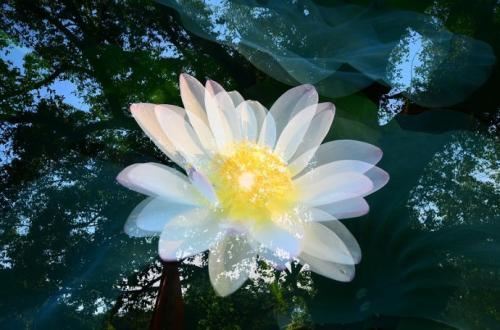 Master Mengsan: The cause and condition between me and Master Hongyi
Master Mengsan: The cause and condition between me and Master Hongyi
 Master Hongyi on Ksitigarbha Bodhisattva ─Encourage the Taoist companions of Pure Land Buddhism to recite the Ksitigarbha Sutra
Master Hongyi on Ksitigarbha Bodhisattva ─Encourage the Taoist companions of Pure Land Buddhism to recite the Ksitigarbha Sutra
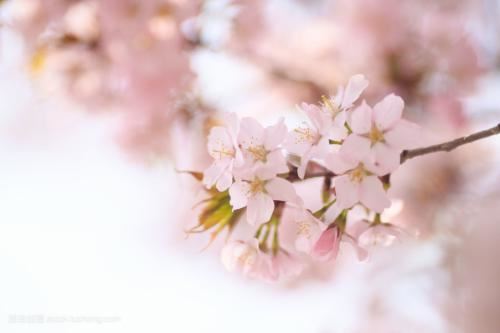 Master Hongyi: Why is the Medicine Buddha Dharma maintaining worldly Dharma and quickly attaining Bodhi
Master Hongyi: Why is the Medicine Buddha Dharma maintaining worldly Dharma and quickly attaining Bodhi
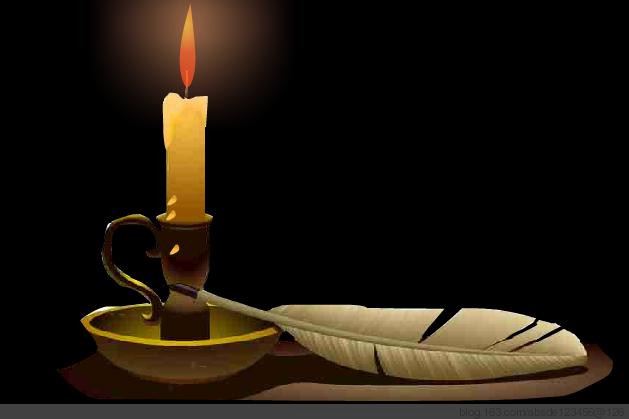 Master Hongyi: Nine Proverbs for Practicing the Body and the Mind (Excerpt)
Master Hongyi: Nine Proverbs for Practicing the Body and the Mind (Excerpt)
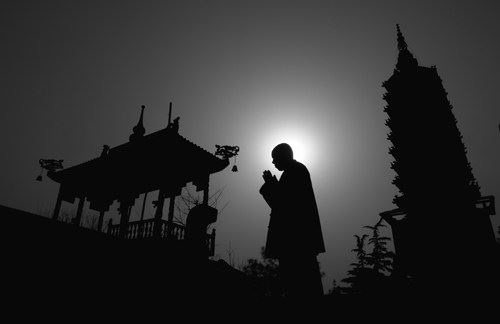 Master Hongyi: Ten benefits of copying scriptures
Master Hongyi: Ten benefits of copying scriptures
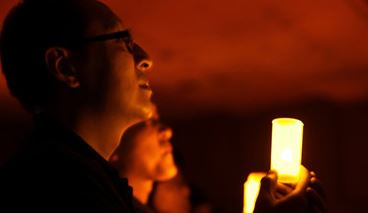 What Master Hongyi is little known: He once went to the Heavenly Palace to preach but did something wrong
What Master Hongyi is little known: He once went to the Heavenly Palace to preach but did something wrong
Simplified Chinese sound annotation |Master Hongyi: Observing the Eight Precepts
 Master Hongyi of Pure Land Buddhism
Master Hongyi of Pure Land Buddhism
 Master Hongyi and his calligraphy are also called the most treasure of the country
Master Hongyi and his calligraphy are also called the most treasure of the country
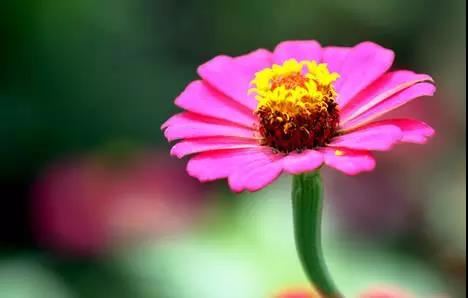 Master Hongyi: Don’t misunderstand Buddhism
Master Hongyi: Don’t misunderstand Buddhism
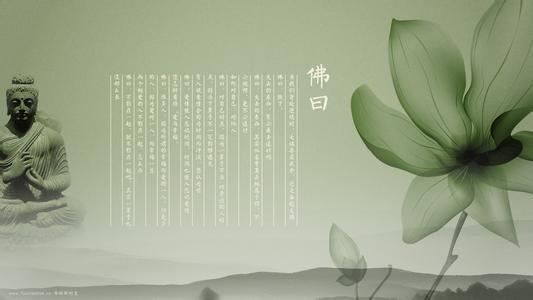 Master Hongyi: Seven ways to practice the Medicine Buddha Dharma
Master Hongyi: Seven ways to practice the Medicine Buddha Dharma
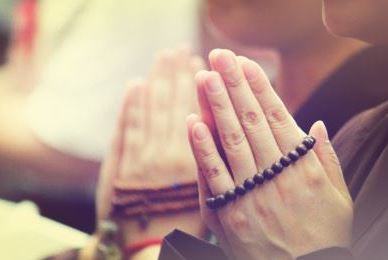 Master Hongyi: The benefits of practicing the Medicine Buddha's Dharma
Master Hongyi: The benefits of practicing the Medicine Buddha's Dharma
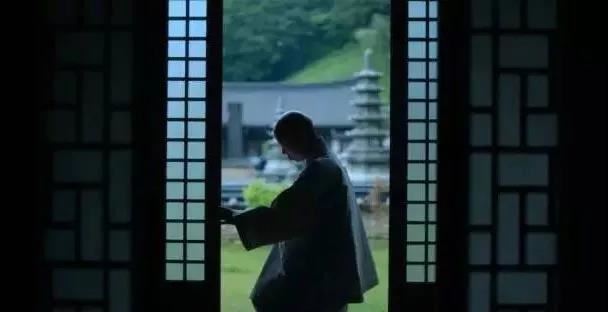 Introduction to the life of Master Hongyi (Li Shutong)
Introduction to the life of Master Hongyi (Li Shutong)
A preliminary study on the thoughts of Amitabha Pure Land by Master Hongyi
 Master Hongyi and the Poem of Protecting Life
Master Hongyi and the Poem of Protecting Life
Master Hongyi: Discipline yourself and bring autumn air
Master Hongyi: How can parents cultivate blessings for their children?
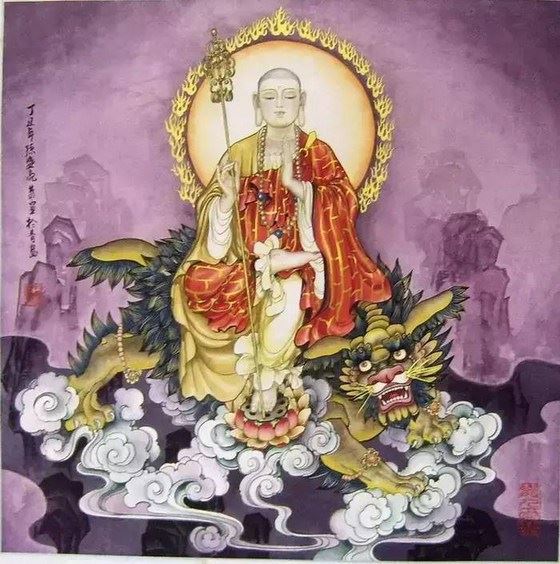 Master Hongyi’s inspiration to worship Ksitigarbha Bodhisattva
Master Hongyi’s inspiration to worship Ksitigarbha Bodhisattva
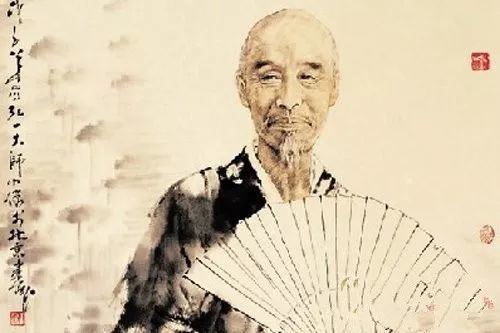 Master Hongyi's teaching by example
Master Hongyi's teaching by example
 They're trying to kill our new vegan movies, studying the intersection of diet, poverty and systemic racism
They're trying to kill our new vegan movies, studying the intersection of diet, poverty and systemic racism
Master Huilu: Where is the intersection of Mahayana and Hinayana?
 Virtual Summit brings together black vegans to discuss the intersection of race and vegetarianism
Virtual Summit brings together black vegans to discuss the intersection of race and vegetarianism
 Master Lefa: Master Hongyi is in southern Fujian
Master Lefa: Master Hongyi is in southern Fujian
《"Master Hongyi" (Buddhist song)The world of the worldSiting
Elder Mengsan talks about the reasons for becoming a monk
《"Master Hongyi's Buddhist songs, Buddhist music
 Master Hongyi's teaching by example
Master Hongyi's teaching by example
 Implementing my promise to Master Hongyi finally completes the "Study of Protecting Life"
Implementing my promise to Master Hongyi finally completes the "Study of Protecting Life"
 Landscapes depend on each other: Master Yin Guang and Master Hongyi
Landscapes depend on each other: Master Yin Guang and Master Hongyi
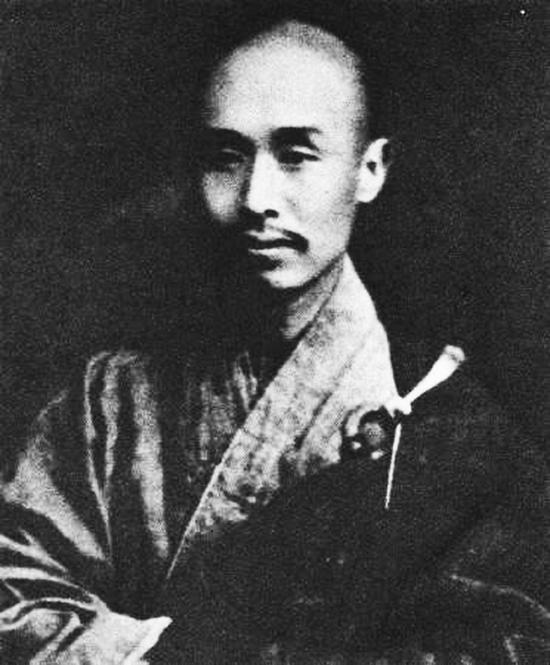 Master Hongyi: The Buddhist Sect
Master Hongyi: The Buddhist Sect
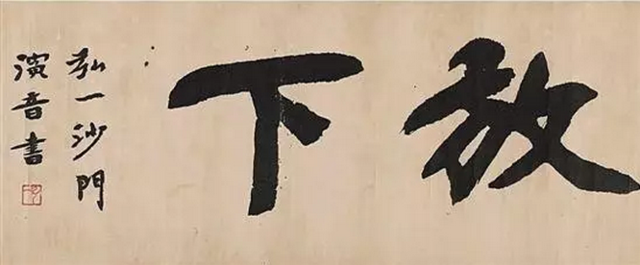 Master Hongyi: My words are Dharma
Master Hongyi: My words are Dharma
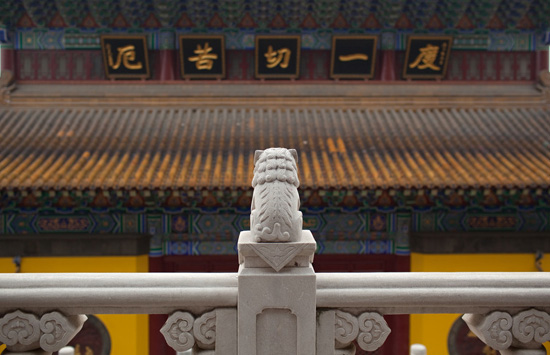 Master Hongyi: Buddhism does not mean to destroy the world
Master Hongyi: Buddhism does not mean to destroy the world
 Master Hongyi: Five blessings of releasing animals
Master Hongyi: Five blessings of releasing animals
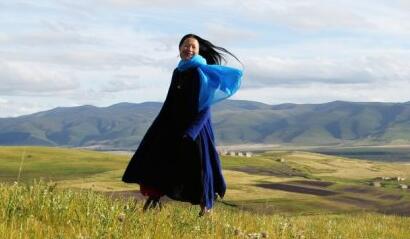 Master Hongyi: There is nothing bad in the world
Master Hongyi: There is nothing bad in the world
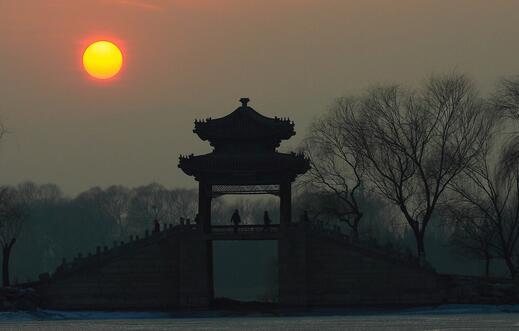 Master Hongyi: Is there any convenient method to learn Buddhism?It's enough to do these three things
Master Hongyi: Is there any convenient method to learn Buddhism?It's enough to do these three things
 Master Hongyi: Buddhism is not a religion, it does not teach people to be disgusted with the world
Master Hongyi: Buddhism is not a religion, it does not teach people to be disgusted with the world
 What is the best of Master Hongyi’s calligraphy?
What is the best of Master Hongyi’s calligraphy?
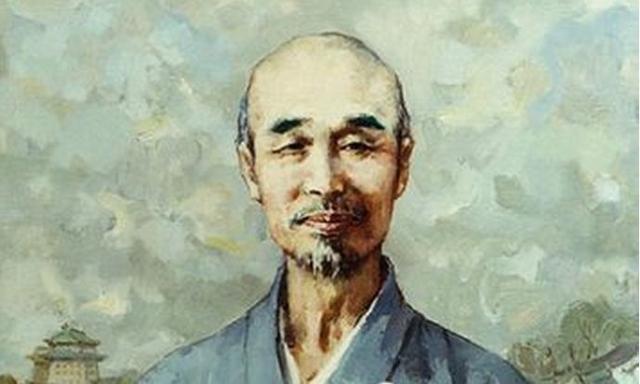 Please send these ten words from Master Hongyi to those who still believe that Buddhism is superstitious
Please send these ten words from Master Hongyi to those who still believe that Buddhism is superstitious
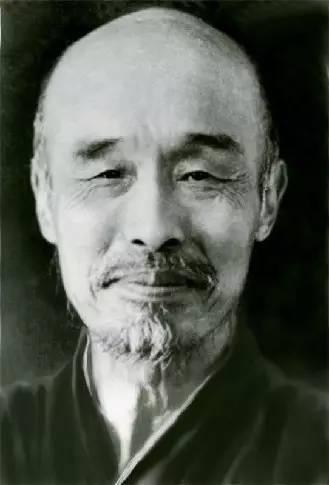 Master Hongyi Li Shutong and his "sadness and joy"
Master Hongyi Li Shutong and his "sadness and joy"
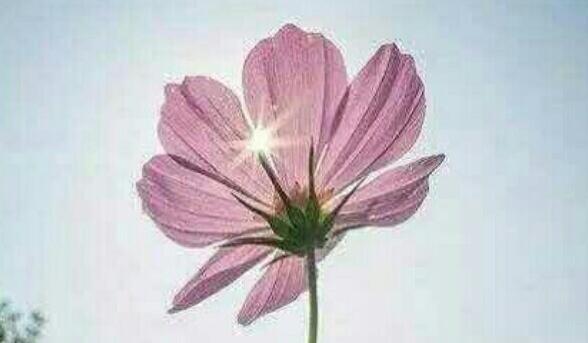 Master Hongyi: The three simplest ways to practice Buddhism
Master Hongyi: The three simplest ways to practice Buddhism
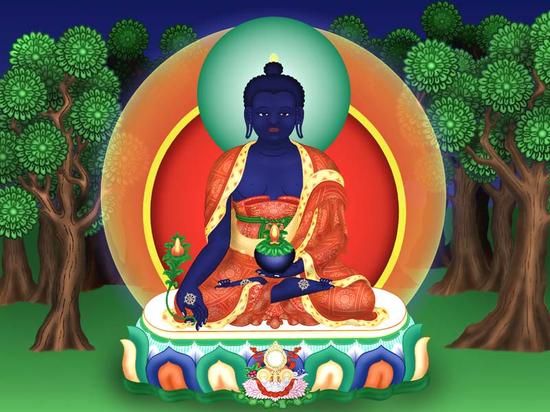 Master Hongyi: The Medicine Buddha Dharma is the method of becoming a Buddha at the fastest speed of the One Vehicle
Master Hongyi: The Medicine Buddha Dharma is the method of becoming a Buddha at the fastest speed of the One Vehicle
 Master Hongyi’s teachings!10 Causes and Results of Good and Evil in Buddhism
Master Hongyi’s teachings!10 Causes and Results of Good and Evil in Buddhism
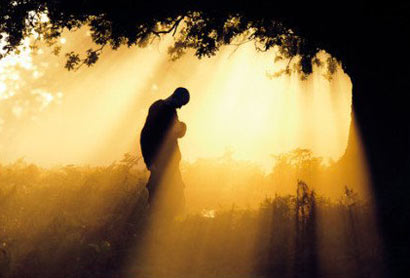 What are the precautions for paying respect to the Three Treasures?Master Hongyi said this
What are the precautions for paying respect to the Three Treasures?Master Hongyi said this
 Feng Zikai reveals the reasons why Master Hongyi can succeed in doing anything
Feng Zikai reveals the reasons why Master Hongyi can succeed in doing anything
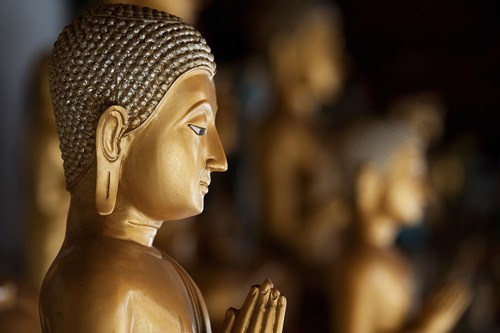 Master Hongyi's joy and sorrow
Master Hongyi's joy and sorrow
 It's rare to see!Master Hongyi personally draws Guanyin Bodhisattva
It's rare to see!Master Hongyi personally draws Guanyin Bodhisattva
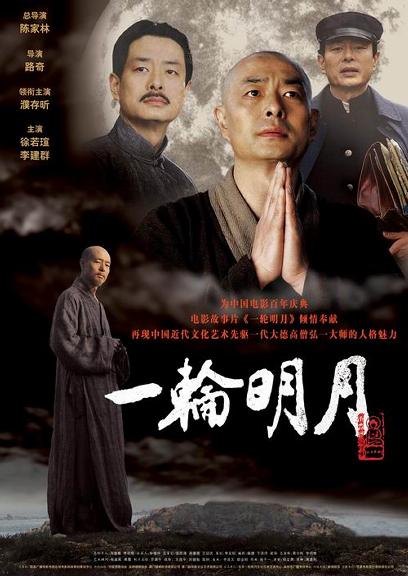 Pu Cunxin said that playing Master Hongyi affects his life
Pu Cunxin said that playing Master Hongyi affects his life
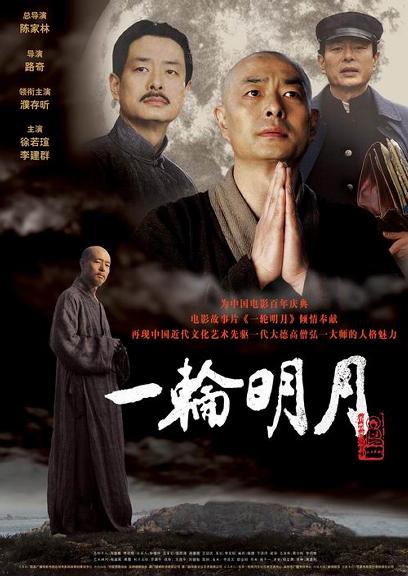 Pu Cunxin: Master Hongyi affects my life
Pu Cunxin: Master Hongyi affects my life
 Pu Cunxin: Playing Master Hongyi affects my whole life
Pu Cunxin: Playing Master Hongyi affects my whole life
 Is burning incense and worshiping Buddha during the Spring Festival a superstition?Please see Master Hongyi's explanation
Is burning incense and worshiping Buddha during the Spring Festival a superstition?Please see Master Hongyi's explanation
Master Hongyi: How to become a well-educated person
 Master Hongyi: What does it mean to leave our planet by being born?
Master Hongyi: What does it mean to leave our planet by being born?
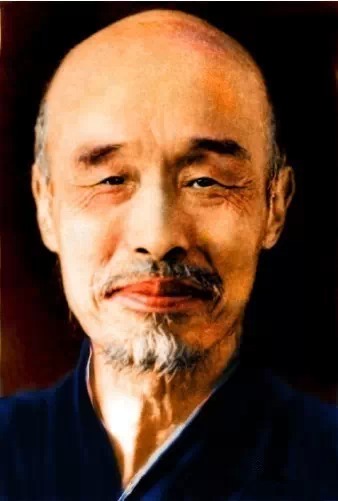 Master Hongyi: There is nothing bad in the world
Master Hongyi: There is nothing bad in the world
Master Hongyi: All four elements are empty and nothing is gone
 Master Hongyi: The legendary life of a romantic talent to a generation of monks
Master Hongyi: The legendary life of a romantic talent to a generation of monks
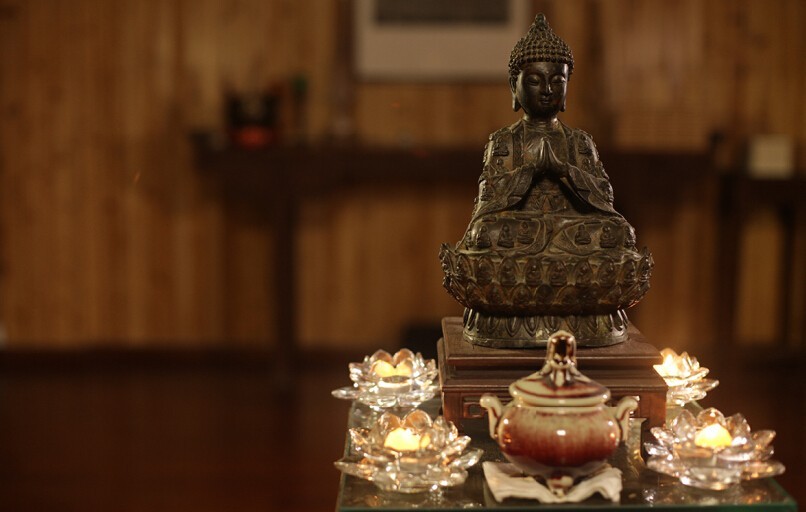 Master Hongyi: To those who believe that Buddhism is superstitious
Master Hongyi: To those who believe that Buddhism is superstitious
Complete collection of Buddhist scriptures
Share on WeChat
Scan the QR code to share on WeChat or Moments


